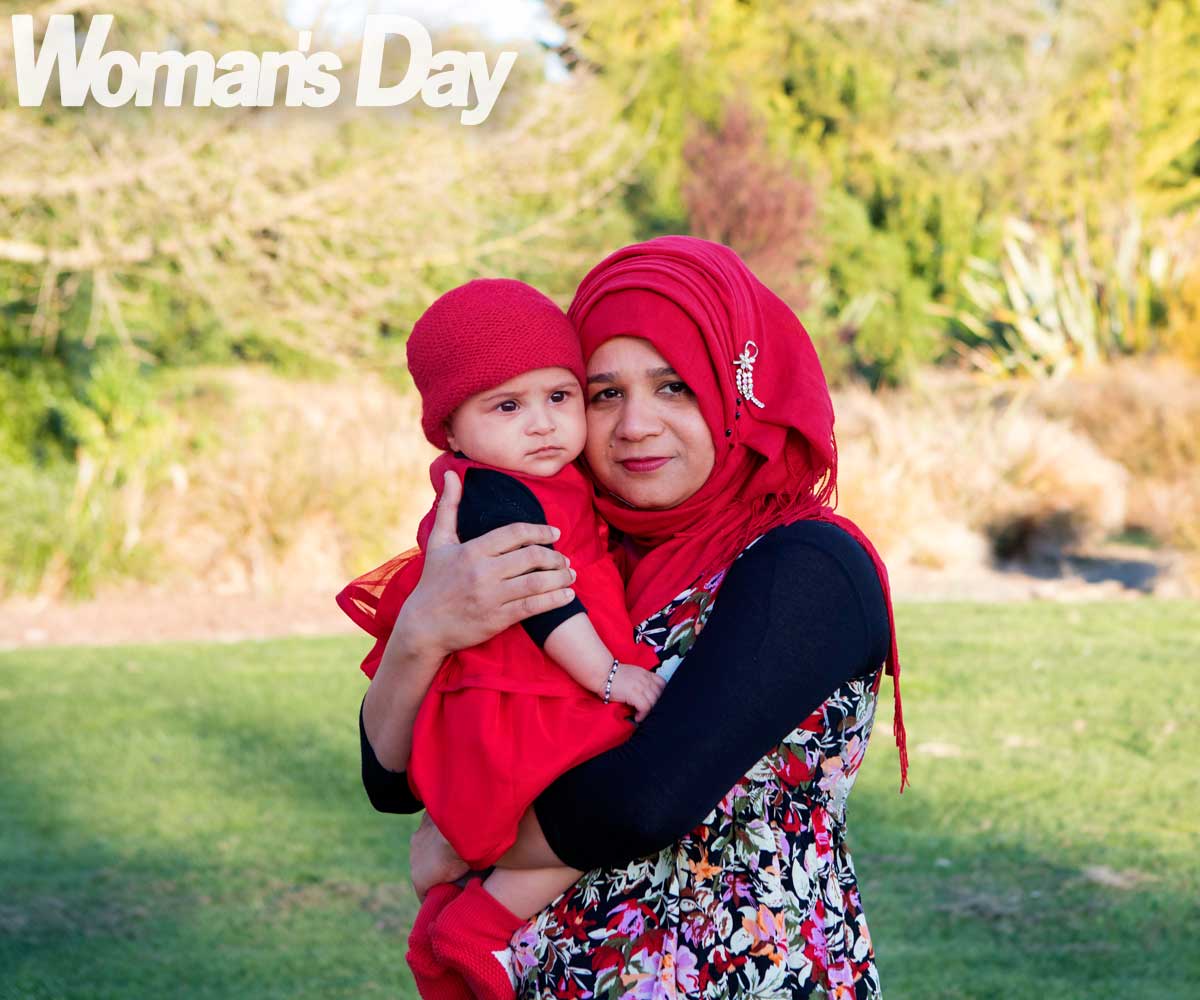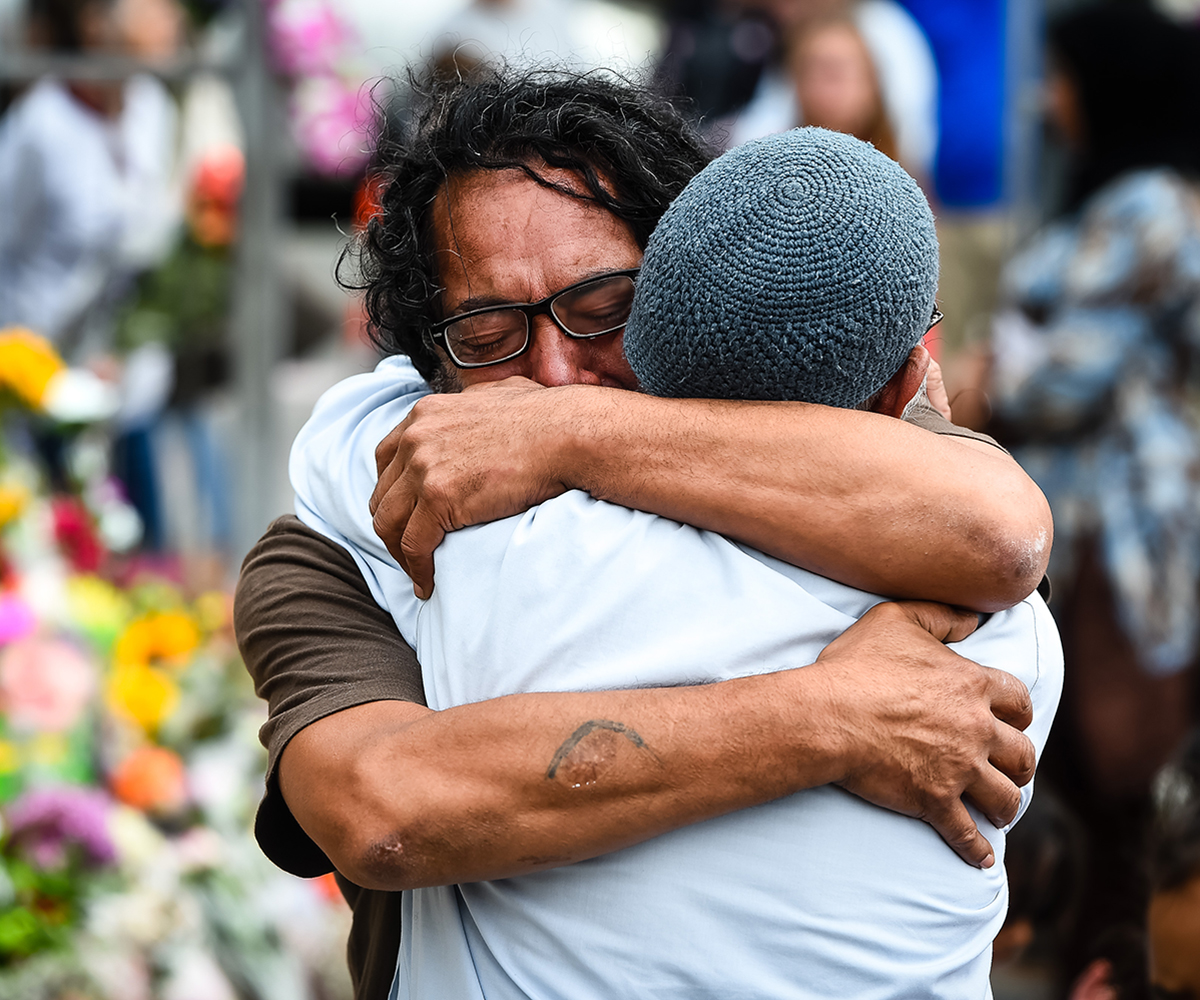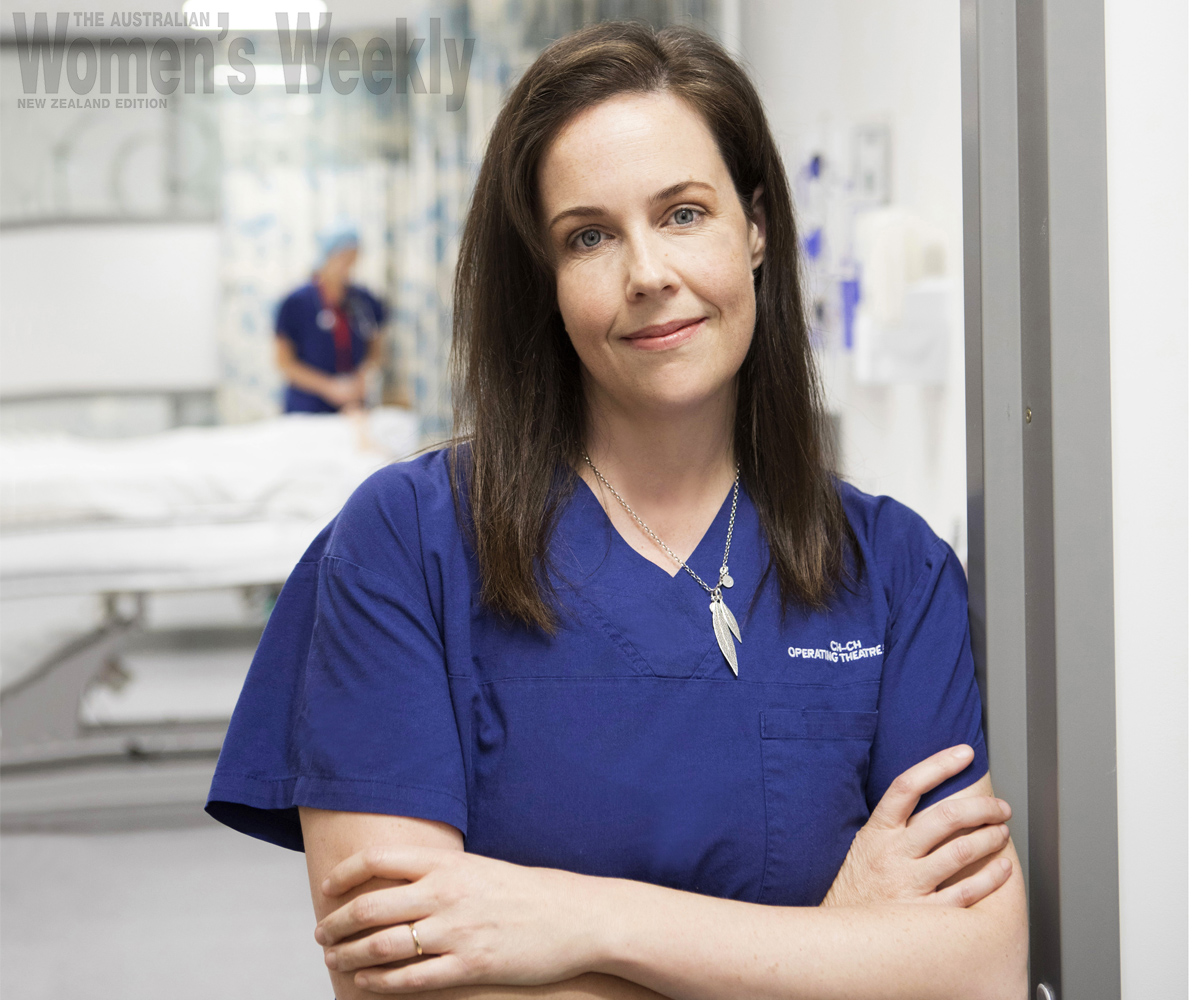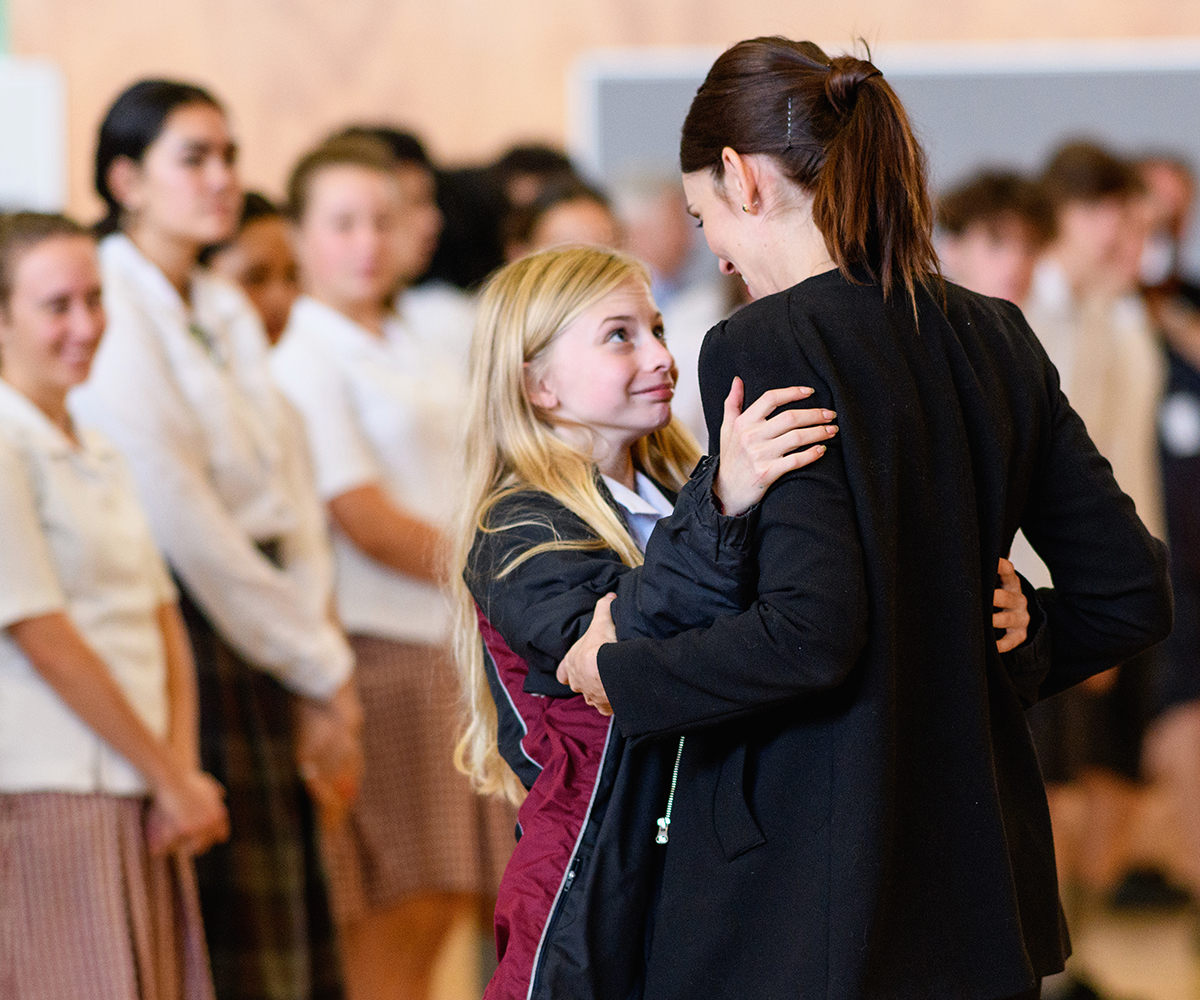Baby Maysha gives a big stretch from the tips of her delicate fingers to her tiny toes as she lies contentedly on a bed next to her mother. She is every part a miracle baby, surviving a traumatic delivery after she stopped breathing as she entered the world.
She is also the precious daughter that doting dad and mosque shooting victim Ramiz Vora never got to hold.
On a chilly winter’s morning, new mum Khusbu Vora welcomes us into her Christchurch home, where family from around the globe have gathered to support her during the most difficult time of her life.

“He treated me like a princess,” says Khusbu of her husband of six years.
The 30-year-old widow is gradually coming to terms with a life without the father of her adorable baby girl, born just five days before Ramiz died during prayers at the Al Noor Mosque on March 15.
“She is my gift from Allah,” Khusbu tells Woman’s Day, the cute bub thriving despite a rocky entry into the world and losing both her father and grandfather in a single horrific afternoon.
In an exclusive interview, new mum Khusbu says her shattered family is growing stronger by the day as she bravely finds the confidence to take charge in a situation she never dreamed she’d face.
As delicious aromas from the kitchen fill her home, Khusbu tells us this year was meant to be the start of an exciting chapter in the married couple’s lives, finally having the family they had long dreamed about.

After the heartbreak of two miscarriages, the loving couple were thrilled to be expecting Maysha.
They hoped that after two earlier miscarriages their prayers would be answered in the beautiful southern Garden City they called home.
But after the best part of a 13-hour labour on Sunday, March 10, with Ramiz, 29, at her side, it seemed happiness would elude them once more.
“When Maysha was born, she was put in an incubator because she couldn’t breathe by herself,” tells Khusbu. “I didn’t know anything about it when I delivered her. I only knew she was a baby girl, but I didn’t know how she was doing because they took her away from me.
“My husband went with them to check if everything was alright. When he came back, his eyes were red from crying. I asked him what happened to our baby and he told me she couldn’t breathe by herself, so the doctors were taking extra care of her.

Khusbu’s last text to her husband was to tell him their ailing girl was going to be OK.
“The next day, he told me when I delivered my baby, she didn’t have a heartbeat. So I can say this is one miracle baby.”
The little one’s brush with death in the delivery suite meant she would spend the first four days in the neonatal unit, with concerns her brain had been starved of oxygen at birth.
By Thursday, a clear MRI saw her moved to a regular ward and the prospect of being discharged that weekend.
With the majority of tubes removed from her body, Khusbu got to hold her child for the first time.

Khusbu looks at treasured photos of her husband.
“We were so excited and we went to see her in hospital – me, my husband, my father-in-law and mother-in-law,” Khusbu recalls.
“We took some photos and I held her for the first time, but my husband was scared. He told me that he would hold her when she came home. In the end, my husband didn’t hold her once.”
Khusbu says the last time she saw Ramiz was barely 30 minutes before the March 15 shooting took place.
Ramiz and his father Arif Vora had dropped off the women at the hospital to be with Maysha before heading to Friday prayers on that fateful afternoon. Her husband urged her to speak to the social worker at the hospital about arranging a New Zealand passport for the newborn girl.
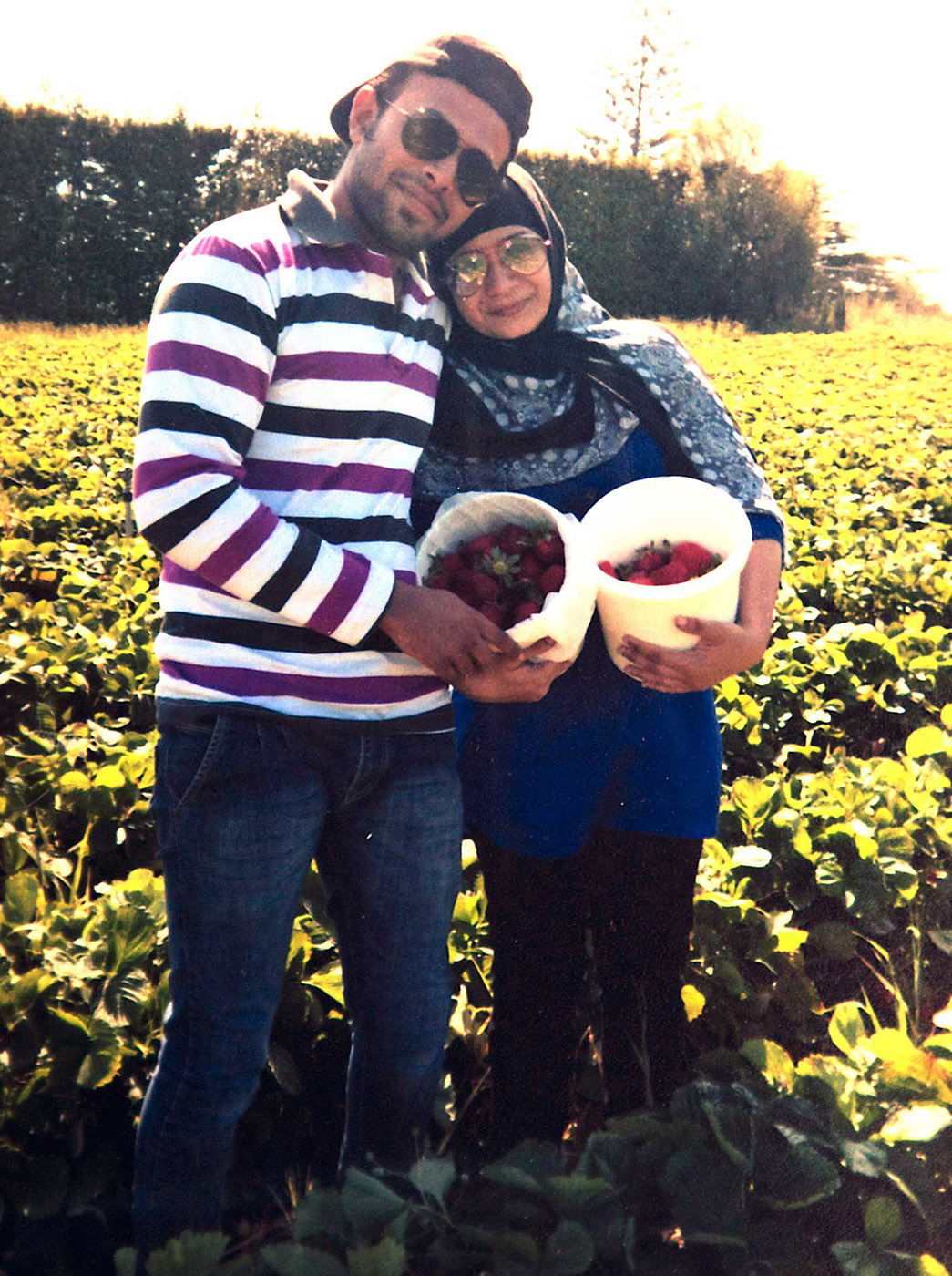
Picking berries in Auckland.
“He also told me to check how Maysha was doing and message him.
“Then 10 to 15 minutes later, I got a call from my friend saying something had happened at the mosque. I tried calling him to check if he was alright. Even when Ramiz was busy, he’d say, ‘I am busy and will message you later.’ But that day he was not responding at all.”
Khusbu says it threw her into a panic, with frantic calls across the Tasman asking her brother-in-law if he could get in contact with either Ramiz or his dad. But the desperate calls went unanswered – the pair casualties of the attacks that left 51 dead and 49 injured.
Yet Khusbu remained hopeful, thinking her husband of six years might still be alive, perhaps unconscious or taken to another hospital for treatment. It wasn’t until two days later that the heartbreaking news was confirmed.

Scared when she first came to NZ, Ramiz brought his new bride out of her shell.
“In the morning, I just felt weird and for the first time my daughter cried,” she says. “I went home and asked my brother-in-law, ‘Tell me the truth because I know something but I’m not completely sure.’ Then I cried and he said, ‘Yes, you are correct.’
“My heart was in 100 pieces. It was a really hard time because my daughter was not at home – she was still in hospital – and my husband had not even held her once.”
The following week, burying her husband and father-in-law in the Christchurch cemetery was “awful”.
Khusbu says rather than recovering from childbirth and embracing motherhood, she was making funeral arrangements and taking over the household finances – an area her husband had always been in charge of.

On the ferry to Picton to start their new life in Christchurch.
“Everyone helped me,” says a grateful Khusba. “My sister-in-law was here, my mum and dad – everyone was with me so I had lots of family here at the time. I know my husband would want me to be strong.”
The couple wed in an arranged marriage in India in 2013, but spent the first year apart while Ramiz studied in New Zealand.
They reunited and moved to Christchurch – where he had a job at Tegel Foods and Khusbu worked at Pita Pit – and were dreaming of an exciting future together.
“We wanted to buy a house and were planning to live happily with our little one,” she tells, adding not a single minute goes by that she doesn’t miss her husband.
She takes great comfort in knowing the final text message she shared with Ramiz reassured him that his little angel was now over the worst.

She had a difficult start to life, but Maysha is now thriving.
“I messaged him, ‘Your baby girl is, Alhamdulillah [praise be to God], alright. He texted back, ‘OK. Mashallah [this is what God wills].’ That was his last message.”
As cherubic-faced Maysha confidently sits up by herself, the relieved mum confirms, “She’s now growing well and everything is good.”
And while Khusbu loves being a mother, she is sad she can’t share her future with the man she adored.
“If he was here, he would be a very good father because he loved kids, especially girls. We have lots of nephews and Ramiz loved them, and the boys loved him a lot. Every time they’d ask, ‘Uncle, can you buy this, we want this!'”
Now, after nearly six months without Ramiz at her side, she is confidently taking charge of the house-hold finances and even plans to learn how to drive when her baby is a bit older.

“I didn’t know what I was doing before because I was fully dependent on my husband,” explains Khusbu. “He paid the rent, the electricity and the Wi-Fi bills, and I didn’t know anything about that.
“But after March 15, I learned how to connect the Wi-Fi and how to sign the contract with my house. Over the last six years, Ramiz helped me to be independent and stay independent.”
With the prospect of raising her beautiful daughter alone, Khusbu vows she will make sure the precious little girl knows her dad loved her dearly.

“If he was here, he would be a very good father because he loved kids,” says Khusbu, who now runs her household.
“I’ll tell Maysha that her father was a very great man. I was not confident when I came to New Zealand – I was so scared – but he was pushing me everywhere, telling me, ‘You have to go there, you have to do that job.’
“No-one can replace Ramiz in my life. He was everything to me. He treated me like a princess. Throughout my pregnancy, he did everything for me. He would iron, cook and care for me.”
She concludes, “Each and every second I miss him, but I know he was at a very good place and I hope Allah gives him a really high place in eternity. He was a very good husband and very brave, and
I’m proud of him.”
